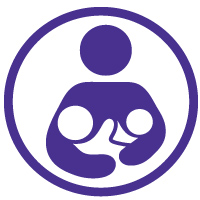 IBCLC Detailed Content Outline: Clinical Skills / Public Health and Advocacy Focused CERPs - Section VII E
IBCLC Detailed Content Outline: Clinical Skills / Public Health and Advocacy Focused CERPs - Section VII E
Access CERPs on Clinical Skills / Public Health and Advocacy for the IBCLC Detailed Content Outline recertification requirements. On-demand viewing of the latest Clinical Skills / Public Health and Advocacy focused IBCLC CERPs at your own pace.
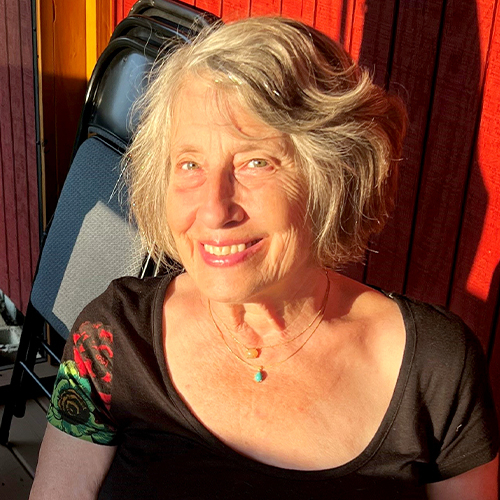
10 Steps to a Breastfeeding Friendly Shelter: Building a Policy

Nikki started as an LPN in 1971, got her RN and BSN, and a graduate degree. She is an author, a teacher, a holistic lactation consultant, a craniosacral therapy practitioner, and a baby body worker (teaching Infant Massage and TummyTime! She is mother to 2 wonderful (breastfed for a long time) daughters, wife to 3 interesting men, only one of whom was the right one for the past 37 years, Rafe!
Her publications include the books, Complementary and Alternative Medicine in Breastfeeding Therapy and A Breastfeeding Owner’s Manual; the monographs, “Benefits of Breastfeeding and Their Economic Impact” and “Sexuality and Breastfeeding” and the educational pamphlet “How to help yourself through labor”. She has been the reviews editor for the journal Clinical Lactation, and has worked as the lactation consultant for the division of Maternal, Child, and Family Health at the Philadelphia Department of Public Health since 2006.
Topic: Breastfeeding Counselling Concepts from Disciplines Outside the Maternity Ward - [View Abstract]
Topic: Tips and Tricks for Writing Breastfeeding Policy - [View Abstract]
Topic: Words That Work - [View Abstract]
This presentation will describe the 5-year journey to the creation and implementation of the 10 Steps to a Breastfeeding Friendly Shelter, starting with a key person, the prime mover, wondering, as she struggled in her resource-rich home with breastfeeding, "what do mothers experiencing homelessness do when they have trouble breastfeeding?" This question led to the formation of a committee, with the eventual outcome of a published policy paper and the Office of Homeless Services changing its provider contract to include accommodations for breastfeeding.
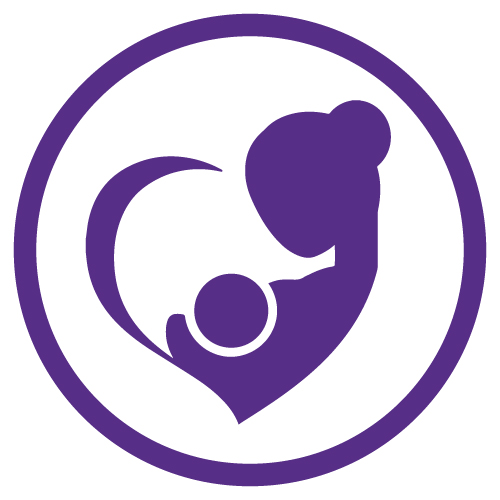
View Details / Enroll

Avoid Lawsuits and Pink Slips! Legal and Ethical Issues for the IBCLC

Liz Brooks is a private practice International Board Certified Lactation Consultant (IBCLC) and licensed lawyer, with expertise in criminal, administrative, non-profit, ethics, and lactation-related law. Liz offers in-home lactation consultations, and bedside care and teaching in two Baby-Friendly-designated hospitals.
She has been a leader in organizations for IBCLCs, breastfeeding promotion, and non-profit human milk banking. She authored the only textbook on legal and ethical issues for the IBCLC, and writes on health care ethics, equity, and conflict-of-interest in several books, blogs, and peer-reviewed journals.
She is a popular international conference speaker, offering practical tips with wit and wisdom for anyone who works with lactating and human milk-using families. Liz self-identifies as a cisgender hetero white woman with unearned privilege, and uses she/her/hers pronouns.
Topic: Using a Cool Head When You’re on the Hot Seat: Ethical and Legal Topics That Make Us Sweat, and How to Avoid Getting Burned - [View Abstract]
Topic: What’s Too “Friendly” for an IBCLC on Social Media? - [View Abstract]
Topic: Whiners and Deniers: Ethics and Diplomacy in Difficult Cases - [View Abstract]
This presentation is a first of its kind: a "survey course" of legal and ethical tensions unique to the IBCLC. Regardless of one’s other professional licenses or credentials, there are four primary practice-guiding documents for the IBCLC. After a review of those “rules of the road,” we’ll navigate a simple algorithm the IBCLC can use to determine what she could, should or must do, in any situation that sets off ethical red flags in the IBCLC’s mind. Then, we’ll hit highlights of legal and ethical issues for the IBCLC: certification vs. licensure vs. certificates-for-classes-and-courses; who is the patient/client?; conflicts of interest (and tensions from “wearing many hats”); intellectual property law; the (WHO) International Code; the IBCLC in the courtroom (as expert or witness); the IBCLC on the Internet; the IBCLC as breastfeeding advocate, and its corollary: the IBCLC as advocate for a breastfeeding mother.
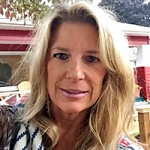

Dr. Rice has been working at the intersection of education and health for social justice and public good. She is the former Executive Director of the Breastfeeding Coalition of Oregon. Currently, Dr. Rice works on organizational development, communication, marketing, public policy and community engagement to advance health equity through access to donor human milk. A national thought leader, she is deeply engaged in convening conversations about the importance of maintaining women’s biological integrity, advancing feminist approaches to human milk banking and at the same time, encouraging capacity building for human milk derived therapies improving health outcomes for the most vulnerable babies.
Most recently Dr. Rice provided consulting as a Policy Associate with Mothers' Milk Bank of San Jose and has provided strategy and policy consulting for the Human Milk Banking Association of North America (HMBANA). Marion holds a doctorate in Education Leadership and is an Internationally Board Certified Lactation Consultant, IBCLC.
This session will look at how for profit corporations are seeking to aggregate, control and exploit human milk. In the absence of federal health policy and consumer regulation/protection, companies are emerging seeking to build commercial markets for human milk often under the guise of improving the economic status of women and infant health.
We will examine companies currently paying for milk both domestically and internationally and the implications for women and emerging policy both at the federal and state level.
Entities setting a price for human milk in the absence of supportive public policy may in fact undermine women’s biological integrity, infant health and contribute to the vulnerability of women and babies.
I will ask participants to consider the issues and to support models of community engagement and decision making that are women centered and women led that keep this biologically critical substance within the community from where it comes; supporting breastfeeding and benefiting women and babies.
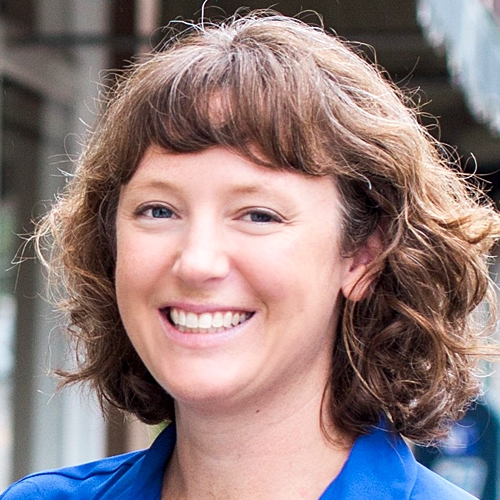
Breastfeeding Education in Secondary Schools—Research and Application for Lactation Professionals

After studying biology at Meredith College in North Carolina, Nicola Singletary, PhD, MAT, IBCLC spent the early part of her career sharing her love of science with middle school students. It was not until after the birth of her first child in 2007 and the challenges she faced breastfeeding that she became interested in pursuing a career in breastfeeding support. She enrolled at North Carolina State University to study human nutrition and completed the Mary Rose Tully Training Initiative through the Carolina Global Breastfeeding Institute at UNC Chapel Hill in 2012. In the fall of 2013, she opened Harmony Lactation, LLC with the goal of helping mothers meet their breastfeeding goals. She recently completed her PhD in Nutrition and is a postdoctoral researcher at NCSU; her research focuses on breastfeeding education. She is also co-owner of Next Level Lactation, an educational and consulting company for lactation professionals.
Topic: Funny Tasting Milk: The Biochemistry and Clinical Applications of Human Milk Oxidation vs. High Lipase Action - [View Abstract]
As part of efforts to increase breastfeeding initiation and duration, educational interventions aimed to increase awareness and positive attitudes towards breastfeeding beginning during the school years are recommended by the World Health Organization and UNICEF UK. Breastfeeding education in the school setting offers the opportunity to introduce the topic to a wide range of students from a variety of socioeconomic and cultural backgrounds. The purpose of this presentation is to 1) present a critical review of the literature regarding stakeholder views of breastfeeding education programs in schools, 2) explore ongoing mixed methods research on North Carolina family and consumer science teacher attitudes and practices relating to infant feeding education in the secondary classroom, and 3) make recommendations for opportunities for lactation professionals to promote breastfeeding education in schools.
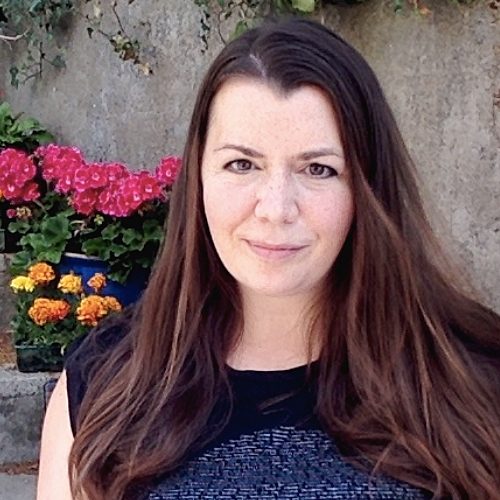
Breastfeeding Trauma: How Can We Recognise and Support Mothers Who Wanted to Breastfeed but Were Unable to Meet Their Goals?

Professor Amy Brown is based in the Department of Public Health, Policy and Social Sciences at Swansea University in the UK. With a background in psychology, she has spent the last thirteen years exploring psychological, cultural and societal influences upon infant feeding decisions in the first year. Her research seeks to understand how we can shift our perception of how babies are fed away from an individual mothering issue to a wider public health problem – with societal level solutions. Dr Brown has published over 60 papers exploring the barriers women face in feeding their baby during the first year. She is a mother to three human children and three book babies: Breastfeeding Uncovered: Who really decides how we feed our babies, Why starting solids matters, and The Positive Breastfeeding Book: Everything you need to feed your baby with confidence. She is a regular blogger, aiming to change the way we think about breastfeeding, mothering and caring for our babies.
Topic: Breastfeeding Trauma: How Can We Recognise and Support Mothers Who Wanted to Breastfeed but Were Unable to Meet Their Goals? - [View Abstract]
Topic: How Can We Better Support Mothers Don’t Meet Their Breastfeeding Goals? - [View Abstract]
Topic: What Do Normal Infant Feeding Patterns Really Look Like? - [View Abstract]
It is recognised that women can experience feelings of guilt, unhappiness and anger when they cannot meet their breastfeeding goals. Breastfeeding difficulties leading to early cessation are a risk factor for postnatal depression. However, research has not previously examined these feelings of loss and distress in relation to clinical models of trauma.
From a research study exploring the experiences of over 3000 women who stopped breastfeeding before they were ready and held negative emotions around this decision, I argue that a subset of these women are displaying symptoms of clinical trauma in relation to their experience. The trauma stems from physical experiences of a difficult breastfeeding experience, but also the loss of a much-desired breastfeeding relationship. The combination of these events leaves the individual traumatised and understandably reactive to the topic of breastfeeding.
Trauma models identify numerous emotions and behaviours that individuals typically display when they have been traumatised by an event. These include recurrent distressing recollections of the events, intense psychological distress at exposure to reminders of the event and efforts to avoid thoughts, feelings or activities that remind one of the event.

View Details / Enroll

Check your “Blind” Spot, The Crisis We Are Not Talking About: Transforming Color Blindness to Racial Equity

Felisha Floyd, BS, CLC, IBCLC is currently Lactation Coordinator for Hospital Corporations of America system in Florida. She also offers infant feeding support, mentorship, and education to her local community via her private practice, Beyond Breastfeeding. Felisha is the founder of Our Brown Baby, a community based breastfeeding support group, which serves to provide specialized culturally sensitive breastfeeding support to families of color. In addition to these roles, Felisha is one of the founding mothers and current President of the non-profit The National Association of Professional and Peer Lactation Supporters of Color, affectionately known as "NAPPLSC". She is also a Center for Social Inclusion First Food Equity Cohort member. Previously, she worked as a Women, Infants, and Children (WIC) Breastfeeding Peer Counselor and Breastfeeding Coordinator.
Fueled by her professional and personal passions to ensure that all mothers have access to quality breastfeeding support and resources, she has fervently pledged to reduce breastfeeding disparities in the African American community. To this end, she continually makes efforts to help increase breastfeeding rates in the African American community by unapologetically fighting that which contributes to racial health disparities. Fearlessly obsessive, she is affectionately known as the social media guru "Blactavist!" (Black Lactation Activist). This online community consists of approximately 38,000 supporters on Twitter, Facebook and Instagram, and is dedicated to empowering African American families to breastfeed.
Felisha is a national leader, an experienced trainer and speaker, and a consultant. Through her aforementioned roles, she has provided training programs across the US on topics of clinical breastfeeding, racial equity, first food justice, mentorship, power of collective impact and more. Her previous experience includes national trainings for WIC and professional consultancies for WIC Loving Support Program and the Boston Medical College's Communities and Hospitals Advancing Maternity Practices grant funded program.
Dedicated to improving the level and diversity of lactation support nationally, Felisha trains and mentors aspiring lactation consultants through her private practice. She is the co-author of Clinical Internships for the Next Generation of IBCLCs, an article featured in The Journal of Human Lactation. Felisha also serves with high honor as a member of the Global Board of Directors for Mom2Mom Global, the Advocacy Chair for the State of Florida Breastfeeding Coalition, Secretary of the Board of Directors for the United States Breastfeeding Committee (USBC). She has been honored as a recipient of the Inaugural Concrete Rose Award by Reaching Our Sisters Everywhere and recognized by USBC with the Legacy Award.
We deepen understanding of false conceptual assumptions that define racial equity by critiquing standards of organizational operations. Strengthening awareness to lactation providers by defining and determining key terms which identifies structural racism and reduces superficial outcomes. By alternating racial equity from a “hot topic” to systemic revolution to deconstruct barriers by challenging these assumptions by concepts. Identifying standards that ensure transformation and shift gears from idealist views on racial equity to strategies to promote impactful solutions. Reevaluating promises to actions which Increases understanding of racial equity through policies, practices and procedures. Empowering audience to determine their baseline and understanding of racial equity to build compacity to their ability to morph from ally to accomplice. Giving guidelines, theories and concepts to build an organizational framework to develop and implement plans to incorporate into practices. Despite a growing interest to being sympathetic to racial equity efforts, this learning environment will improve understanding of systems of racism which impact health outcomes. Giving the learners the ability to examining concrete approaches to advancing racial equity.

View Details / Enroll

View Details / Enroll


Ruth Patterson is Cloud Nine's P I O N E E R & Most Sought Lactation Specialist with 33 years of rich experience - currently practicing at Jayanagar C9, Bangalore-India and a visiting Lactation Consultant with 9 other Cloud Nine branches locally. She also heads the 24 Pan India Cloud Nine Hospitals as the Manager Lactation.
Ruth's 30+ years of rich experience includes maternity, allied health and nursing care, both in rural and urban sector in India & Abroad. Her exclusive 18 years of experience in Lactation services, she has acquired immense practical knowledge in the last decade to identify most critical disorders of mother and babies during breastfeeding stage. She is acclaimed to have expertise in a lesser-known art of re-lactation and induced lactation.
Ruth is known for her ability to identify the most critical issues in Breastfeeding and restore/re-initiate feeds. She is acclaimed for the use of Dynamic Taping (only available at Jayanagar C9) that arrests/prevents breast surgery/abscess. This Dynamic Taping practice, alongside, a Gynecologist, Pediatrician and Physiotherapist at Cloud Nine, is patented.
Ruth is a well sought out person for patient hearing and provides her expert comments in News columns/Media and also delivers guest lectures.
Allyson Wessells is a physical therapist, International Board Certified Lactation Consultant and co-owner of Nurture Columbus, in Columbus, Ohio. She completed a Bachelor’s degree in Biology from Ohio University in 1997, and Master of Physical Therapy degree from Northwestern University in 1999. After having a child in 2007, she volunteered as a La Leche League leader. She discovered a love for supporting new parents but a gap in lactation care, which led her to become an IBCLC in 2014. Her clinical approach to identifying and overcoming feeding challenges is unique with physical therapy foundations in posture, movement and reflexive function. Through presentations she endeavors to engage IBCLCs to know more about movement as related to human lactation, and PTs to learn about breastfeeding/chestfeeding as related to human development. As past-president (2019-2021) of the Ohio Lactation Consultant Association, she also advocates for equitable access to and health plan coverage for lactation care.
Meghan McMillin holds a Master’s Degree in Human Nutrition from the University of Illinois at Chicago. She has been a Registered Dietitian Nutritionist (RDN) since 2013 and became an International Board Certified Lactation Consultant (IBCLC) in 2019
Meghan spent 5 years working clinically in the NICU, pediatric floor and women’s units of a local hospital. In 2019, Meghan started her own private practice and consulting company, Mama & Sweet Pea Nutrition, with a focus on postpartum and infant care. The mama to two young kids with food allergies, helping other families manage food allergies, whether it’s while breastfeeding, during the introduction of solids, or later in childhood, is her passion.
Meghan is a member of the International Lactation Consultant Association and the United States Lactation Consultant Association. She enjoys sharing her knowledge through social media, freelance writing and public speaking. Meghan is the coauthor of the eBook What To Eat When Your Baby Can’t Tolerate Milk, Soy, or Egg Protein; Nutrition guidance for avoiding milk, soy, and/or eggs while lactating.
Meghan has presented both nationally and internationally including for GOLD learning, the National WIC Association and the Academy of Nutrition and Dietetics. In 2020, Meghan was awarded the Emerging Professional in Women's Health Award from the Women's Health Dietetic Practice Group of the Academy of Nutrition and Dietetics.
Meghan lives with her husband and two children outside of Chicago, IL. In her spare time she enjoys working out, allergen-free baking and having dance parties with her kids in the kitchen.
Creating a more connected, coordinated and collaborative healthcare experience closes gaps and promotes comprehensive parent centered care. This panel will explore the benefits, challenges and practicalities of working within a collaborative model of health care for lactation professionals We will explore topics such as how to establish relationships with other professionals, different models of collaborative care, potential barriers and what to do when there’s no one to refer to, scope of practice and liability and how to keep the parent as the director of their care.
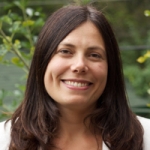

Robyn Lee is an Assistant Professor in Sociology at the University of Alberta. Previously, she was visiting scholar at the Brocher Foundation (Geneva, Switzerland) and a Banting Postdoctoral Fellow at Brock University. She holds a PhD in Social and Political Thought from York University. Her research interests include contemporary social theory, gender, sexuality, care work, and embodiment. She is the author of The Ethics and Politics of Breastfeeding: Power, Pleasure, Poetics, published by University of Toronto Press (2018) and has published articles in journals including Feminist Theory, Hypatia, Gender, Work, and Organization, and Family Theory and Review.
This presentation will explore some contemporary ethical issues in breastfeeding, situating them in social contexts. Issues to be explored will include social responsibilities vs individual responsibilities, social disparities and inequalities, and gender identity/expression.
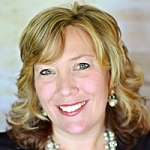
Expanding Our Audience to Gain Greater Appreciation and Acceptance of Breastfeeding

Christy Jo has over 25 years of teaching experience. She is passionate about teaching in ways that simplify learning. She has been awarded the United States Presidential Volunteer Award for her community service, the Phyllis Klaus Founder's Award for her contribution to the Mother/Baby bond and the Above and Beyond Award for innovative projects that exemplify the mission of Public Health. She has also been named Lactation Educator Faculty of the Year from Childbirth and Postpartum Professionals Association and earned their Visionary Award in 2015. Christy Jo is the author of Mommy Feeds Baby and co-author of Making Milk. She created the Grow Our Own Lactation Consultant/IBCLC Prep Course which has been used to train hundreds of students to become Lactation Consultants. She currently resides in California with her husband and three children. She continues to serve her community as a birth doula, Private Practice IBCLC, Health Educator for Public Health, and faculty for the CAPPA CLE© and Childbirth Educator Programs.
Topic: Enhanced Counseling Skills for the Lactation Educator - [View Abstract]
Topic: Expanding Our Audience to Gain Greater Appreciation and Acceptance of Breastfeeding - [View Abstract]
Topic: Sharing Your Wisdom: From Abstract Idea to Awesome Prenatal Breastfeeding Class - [View Abstract]
Topic: The Art of Communication: Simplifying Birth and Breastfeeding - [View Abstract]
As educators and health organizations, we mostly target prenatal women with the breastfeeding message and then are surprised at the push-back we receive from those who do not embrace breastfeeding. In order to tip the scale in breastfeeding acceptance, we must broaden our audience.
This presentation will focus on reaching a larger audience. We must project our message to the masses. It is crucial to share breastfeeding education to society, early and frequently. Breastfeeding education should begin in the school system and be geared for each age appropriately.
We must offer education in a way that each person and organization understands how it applies to them and their situation. For instance, employers will be more likely to embrace the employee that breastfeeds if they understand the far-reaching effects of breastfeeding. The lawmakers will be more likely to approve lactation laws if they comprehend the need for legislation. Partners will offer appropriate support if they receive the same education that is often reserved for the pregnant woman. This presentation will give suggestions of how to reach family, communities, professionals, and lawmakers with the breastfeeding message. When societies embrace breastfeeding, they will embrace breastfeeding women and see it as the norm.
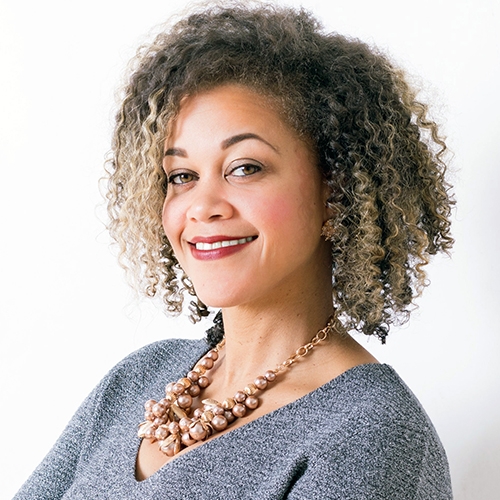
First Do No Harm: The Importance of Assessment, Referral, and Collaborative of Ankyloglossia

Jenn Bio - International Board Certified Lactation Consultant and Birth Doula, Founder and Owner of Feed the Babes, LLC offers in-home and clinic-based, skilled breastfeeding support and birth doula services www.feedthebabes.com. Jennifer also serves as a Michigan Breastfeeding Network (MIBFN) Project Manager and as Co-Founder of the Southeast Michigan IBCLC's of Color. The married mother of two happy, healthy, breastfed children has made it her life mission to disrupt the broken system that plagues the families that are impacted by systemic racism. She's committed to showing up in the community, daily, and, by mentoring aspiring Black IBCLC’s, supporting equipping and empowering future trailblazers to change the world. She is a dual Canadian and American citizen, leader, public speaker, consultant, clinician, advocate, and educator. Collectively as a family, she, her husband and two children enjoy growing their own food, photography, videography and serving their community. They reside in Metro-Detroit, Michigan.
During this presentation, we will discuss how best practices in early referral of skilled lactation support can improve feeding outcomes. Centering Black and Indigenous families by collaboratively working together with early assessment, community referrals and continuum of care across care teams can prevent improper diagnoses of ankyloglossia which can be harmful for families seeking to reach their individual feeding goals.




